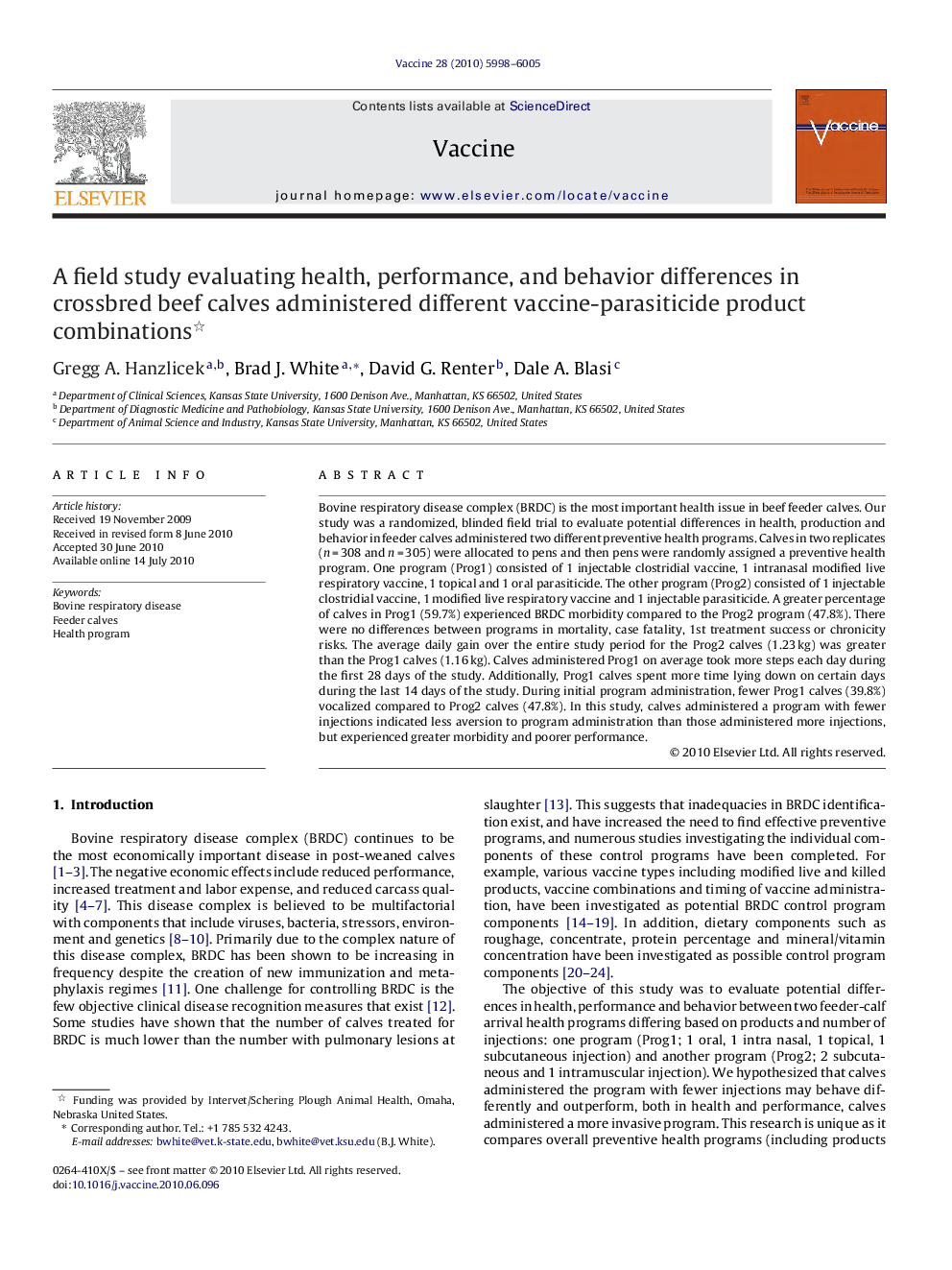| کد مقاله | کد نشریه | سال انتشار | مقاله انگلیسی | نسخه تمام متن |
|---|---|---|---|---|
| 2404049 | 1102949 | 2010 | 8 صفحه PDF | دانلود رایگان |

Bovine respiratory disease complex (BRDC) is the most important health issue in beef feeder calves. Our study was a randomized, blinded field trial to evaluate potential differences in health, production and behavior in feeder calves administered two different preventive health programs. Calves in two replicates (n = 308 and n = 305) were allocated to pens and then pens were randomly assigned a preventive health program. One program (Prog1) consisted of 1 injectable clostridial vaccine, 1 intranasal modified live respiratory vaccine, 1 topical and 1 oral parasiticide. The other program (Prog2) consisted of 1 injectable clostridial vaccine, 1 modified live respiratory vaccine and 1 injectable parasiticide. A greater percentage of calves in Prog1 (59.7%) experienced BRDC morbidity compared to the Prog2 program (47.8%). There were no differences between programs in mortality, case fatality, 1st treatment success or chronicity risks. The average daily gain over the entire study period for the Prog2 calves (1.23 kg) was greater than the Prog1 calves (1.16 kg). Calves administered Prog1 on average took more steps each day during the first 28 days of the study. Additionally, Prog1 calves spent more time lying down on certain days during the last 14 days of the study. During initial program administration, fewer Prog1 calves (39.8%) vocalized compared to Prog2 calves (47.8%). In this study, calves administered a program with fewer injections indicated less aversion to program administration than those administered more injections, but experienced greater morbidity and poorer performance.
Journal: Vaccine - Volume 28, Issue 37, 23 August 2010, Pages 5998–6005